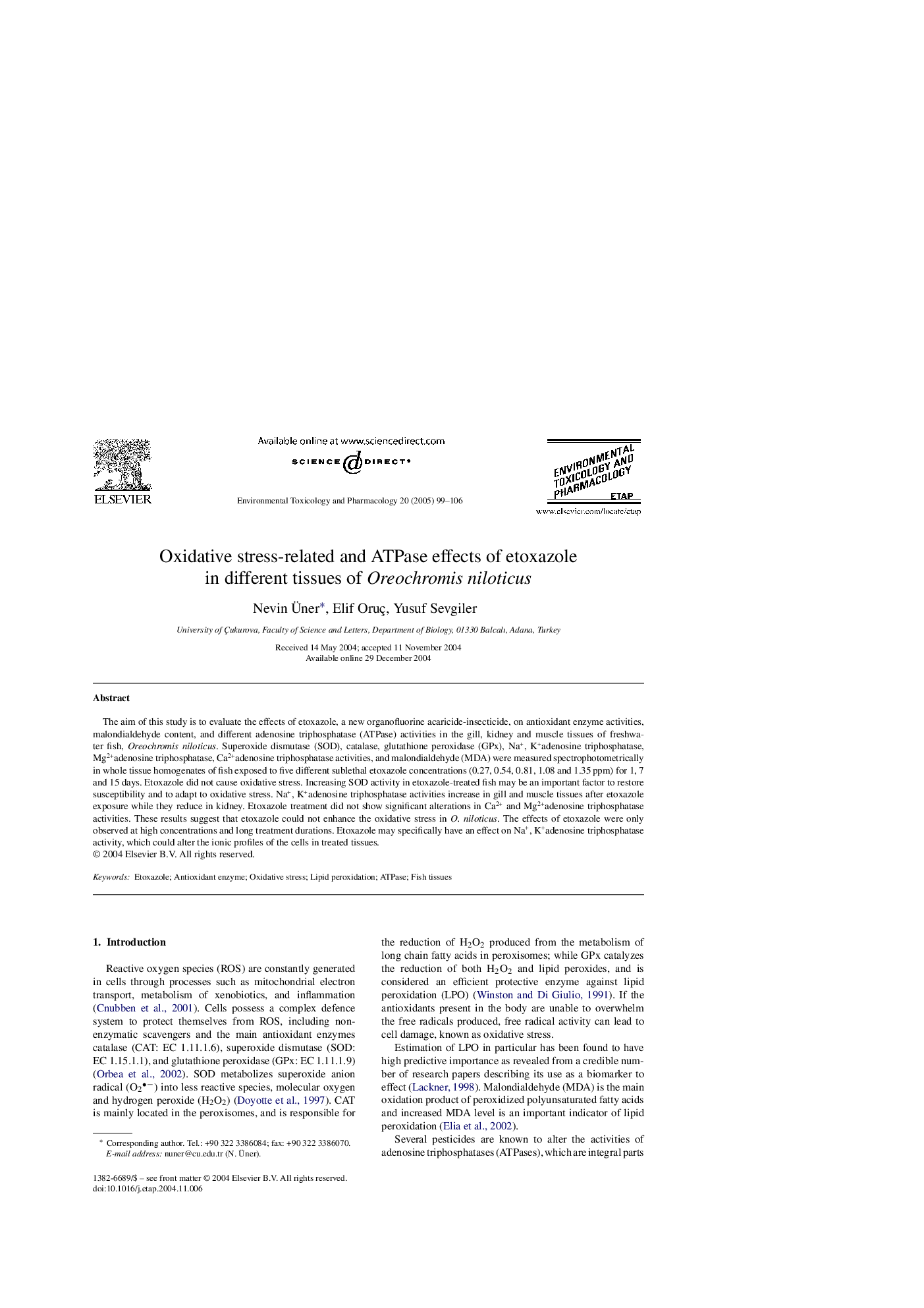| Article ID | Journal | Published Year | Pages | File Type |
|---|---|---|---|---|
| 9030211 | Environmental Toxicology and Pharmacology | 2005 | 8 Pages |
Abstract
The aim of this study is to evaluate the effects of etoxazole, a new organofluorine acaricide-insecticide, on antioxidant enzyme activities, malondialdehyde content, and different adenosine triphosphatase (ATPase) activities in the gill, kidney and muscle tissues of freshwater fish, Oreochromisniloticus. Superoxide dismutase (SOD), catalase, glutathione peroxidase (GPx), Na+, K+adenosine triphosphatase, Mg2+adenosine triphosphatase, Ca2+adenosine triphosphatase activities, and malondialdehyde (MDA) were measured spectrophotometrically in whole tissue homogenates of fish exposed to five different sublethal etoxazole concentrations (0.27, 0.54, 0.81, 1.08 and 1.35Â ppm) for 1, 7 and 15 days. Etoxazole did not cause oxidative stress. Increasing SOD activity in etoxazole-treated fish may be an important factor to restore susceptibility and to adapt to oxidative stress. Na+, K+adenosine triphosphatase activities increase in gill and muscle tissues after etoxazole exposure while they reduce in kidney. Etoxazole treatment did not show significant alterations in Ca2+ and Mg2+adenosine triphosphatase activities. These results suggest that etoxazole could not enhance the oxidative stress in O.niloticus. The effects of etoxazole were only observed at high concentrations and long treatment durations. Etoxazole may specifically have an effect on Na+, K+adenosine triphosphatase activity, which could alter the ionic profiles of the cells in treated tissues.
Related Topics
Life Sciences
Environmental Science
Health, Toxicology and Mutagenesis
Authors
Nevin Ãner, Elif Oruç, Yusuf Sevgiler,
